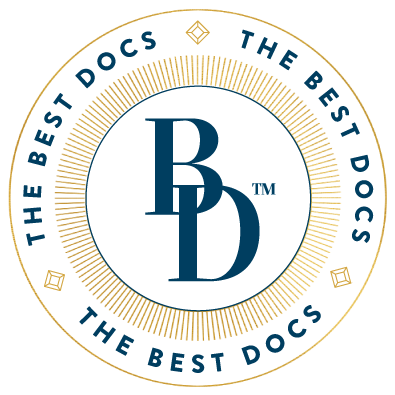Visionary Technology Revolutionizes Cataract Surgery And Lens Replacement
Imagine if there was an artificial eye lens that could be surgically implanted to drastically improve your vision when your eye’s original lens didn’t perform well anymore. The improvement would be so great that you wouldn’t even need to wear glasses or contacts after the surgery.
It sounds futuristic, right? But the fact is this revolutionary technology already exists in the form of premium intraocular lenses (IOLs), and ophthalmologists like Dr. Jeffrey Hong are increasingly utilizing the advanced technology to benefit patients who require cataract surgery.
Dr. Hong has performed thousands of cataract surgeries over the years and says premium IOL implants—when combined with laser-assisted cataract surgery—deliver amazing results.
To better understand the advances, we asked Dr. Hong to describe the revolutionary technology in laymen’s terms.
“During cataract surgery, the eye’s natural lens—which has become clouded over time because of the cataract—is removed and replaced with a new lens…called an intraocular lens or IOL,” Dr. Hong explains. This process is standard for every cataract patient. The old lens is removed and replaced with a new one. The femto-second laser technology adds greater precision to the surgery by making incisions and softening the cataract before its removal with the ultrasonic device.
In the past, Dr. Hong says there was only one choice in lens replacement—monofocal lenses. “This option—which is still available today—cures the cloudiness in the eye, but typically the patient still needs to wear glasses post-surgery to correct for any astigmatism and near vision problems,” he says.
Like many other technologies, cataract replacement lenses have advanced over the years to become much more like the eye’s original lens. Premium IOLs—often referred to as “multifocal” or “accommodative” lenses—typically do away with the need for glasses after cataract surgery. In the most basic sense, multifocal lenses improve vision by manipulating the light coming into the lens. Accommodative lenses achieve the improvements through the muscles in the eye that move the IOL forward and backward.
“Like many other technologies, cataract replacement lenses have advanced over the years to become much more like the eye’s original lens. Premium IOLs—often referred to as “multifocal” or “accommodative” lenses—typically do away with the need for glasses after cataract surgery.”
Is everyone a suitable candidate for premium IOLs?
“As an experienced ophthalmologist, I know that the answer to this question requires an involved consultation to better understand the patient’s lifestyle, health, visual needs, concerns, budget, and expectations,” Dr. Hong explains. “Without in-depth knowledge of the patient’s background and mindset, it’s difficult to know if the premium IOL will be an appropriate choice.”
For example, someone who simply wants to see better at night while driving might not need premium IOLs. The standard IOL might be fine. However, if that same person wants improved night vision and also wants to do away with reading glasses, premium IOLs could be the better choice.
“Premium IOLs are a tremendous benefit to cataract surgery patients, but it’s important to treat each patient as an individual—because they are unique,” Dr. Hong explains. “My best advice for cataract surgery patients is to first seek out a board-certified ophthalmologist. This helps ensure you are working a top-notch surgeon who has the proven education, experience and expertise to deliver the best results.”
Dr. Hong, who is certified by the American Board of Ophthalmology, offers this concluding guidance: Cataract patients who want greater independence from eyeglasses after surgery should always take the time to understand their premium IOL options. “The opportunity for improved vision is too great to not seek more information.”



